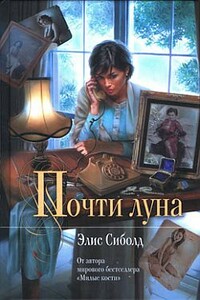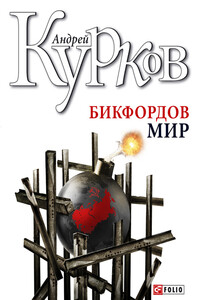My mother made a sound and reached out her hand. The sound was a metallic squeak, a human-as-machine breaking down, uttering last sounds before the whole engine locks.
“We’ve tested the fibers,” Len said. “It appears whoever accosted Susie used this during the crime.”
“What?” my father asked. He was powerless. He was being told something he could not comprehend.
“As a way to keep her quiet.”
“What?”
“It is covered with her saliva,” the uniformed officer, who had been silent until now, volunteered. “He gagged her with it.”
My mother grabbed it out of Len Fenerman’s hands, and the bells she had sewn into the pompom sounded as she landed on her knees. She bent over the hat she had made me.
I saw Lindsey stiffen at the door. Our parents were unrecognizable to her; everything was unrecognizable.
My father led the well-meaning Len Fenerman and the uniformed officer to the front door.
“Mr. Salmon,” Len Fenerman said, “with the amount of blood we’ve found, and the violence I’m afraid it implies, as well as other material evidence we’ve discussed, we must work with the assumption that your daughter has been killed.”
Lindsey overheard what she already knew, had known since five days before, when my father told her about my elbow. My mother began to wail.
“We’ll be working with this as a murder investigation from this point out,” Fenerman said.
“But there is no body,” my father tried.
“All evidence points to your daughter’s death. I’m very sorry.”
The uniformed officer had been staring to the right of my father’s pleading eyes. I wondered if that was something they’d taught him in school. But Len Fenerman met my father’s gaze. “I’ll call to check in on you later today,” he said.
By the time my father turned back to the living room, he was too devastated to reach out to my mother sitting on the carpet or my sister’s hardened form nearby. He could not let them see him. He mounted the stairs, thinking of Holiday on the rug in the study. He had last seen him there. Into the deep ruff of fur surrounding the dog’s neck, my father would let himself cry.
That afternoon the three of them crept forward in silence, as if the sound of footsteps might confirm the news. Nate’s mother knocked on the door to return Buckley. No one answered. She stepped away, knowing something had changed inside the house, which looked exactly like the ones on either side of it. She made herself my brother’s co-conspirator, telling him they would go out for ice cream and ruin his appetite.
At four, my mother and father ended up standing in the same room downstairs. They had come in from opposite doorways.
My mother looked at my father: “Mother,” she said, and he nodded his head. He made the phone call to my only living grandparent, my mother’s mother, Grandma Lynn.
I worried that my sister, left alone, would do something rash. She sat in her room on the old couch my parents had given up on and worked on hardening herself. Take deep breaths and hold them. Try to stay still for longer and longer periods of time. Make yourself small and like a stone. Curl the edges of yourself up and fold them under where no one can see.
My mother told her it was her choice whether she wanted to return to school before Christmas – there was only one week left – but Lindsey chose to go.
On Monday, in homeroom, everyone stared at her as she approached the front of the classroom.
“The principal would like to see you, dear,” Mrs. Dewitt confided in a hush.
My sister did not look at Mrs. Dewitt when she was speaking. She was perfecting the art of talking to someone while looking through them. That was my first clue that something would have to give. Mrs. Dewitt was also the English teacher, but more importantly she was married to Mr. Dewitt, who coached boys’ soccer and had encouraged Lindsey to try out for his team. My sister liked the Dewitts, but that morning she began looking into the eyes of only those people she could fight against.
As she gathered her things, she heard whispers everywhere. She was certain that right before she left the room Danny Clarke had whispered something to Sylvia Henley. Someone had dropped something near the back of the classroom. They did this, she believed, so that on their way to pick it up and back again, they could say a word or two to their neighbor about the dead girl’s sister.







